So why aren't there that many diesel cars in Bermuda? Its probably because most consumers are not aware of the benefits of diesel cars. And in Bermuda there don't seem to be many diesel car options. Ironically, Greenrock has discovered that there a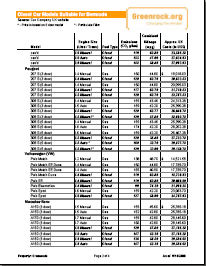 re a number of car manufacturers that produce diesel models equivalent to the gasoline models currently being used in Bermuda today. So the question a consumer needs to ask: why are the diesel models not being offered in Bermuda? (Click on our list attached:
re a number of car manufacturers that produce diesel models equivalent to the gasoline models currently being used in Bermuda today. So the question a consumer needs to ask: why are the diesel models not being offered in Bermuda? (Click on our list attached:
In actual fact, diesel cars tend to be more durable and require less servicing hours than gasoline cars. And when it comes to using biodiesel, there are few issues with high-quality biodiesel, the main one being the viscosity, which is higher than petroleum diesel. This makes the fuel 'thicker' and more resistant to pumping, especially at near freezing temperatures. But when it comes to Bermuda’s temperate climate, there is little chance of this happening.
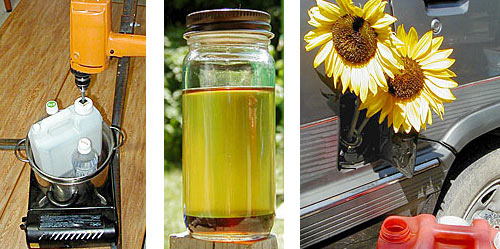
It's important to understand the different types of fuels that can be used in a diesel engine. There are three basic types:
- Petroleum Diesel - Petroleum diesel is refined from petroleum for specific use in diesel engines. This is the diesel you find at your local gas station. Because it comes from petroleum, it produces carbon dioxide, pollution, particulates and sulfur emissions and increases reliance on foreign oil and the pricing volatility of that industry.
- Biodiesel - Biodiesel comes from renewable plant sources, such as oils from vegetables, peanuts, soy beans, canola/rape seeds, hemp seeds and some grains which are domestically and abundantly available. More specifically though, biodiesel refers to plant-derived diesel that has been subjected to the process of transesterification, a chemical modification of ordinary vegetable oil which makes the fuel meet high industry standards for usage in diesel engines and prevents it from solidifying at colder temperatures. Sometimes biodiesel is mixed with petroleum diesel in different proportions and still sold under the name "biodiesel", even though the biodiesel content may be as low as only 5%. Biodiesel and petroleum diesel mix extremely well, and commercially available blends use the labeling B5, B20, B50 or B100, to reflect the percentage of biodiesel to regular diesel. Biodiesel in pure form produces significantly fewer emissions than petroleum diesel and zero sulfur emissions.
- Straight Vegetable Oil (SVO) - Straight vegetable oil refers to any vegetable oil that can power diesel engines but has not been optimised (through transesterification – that is removing glycerin and adding methanol to the oil so it can be used in cars) for usage in automobile fuel systems under all temperature conditions. The major drawback of using SVO is that it gels at colder temperatures and must be heated prior to reaching the engine's fuel injectors during cold weather. You can buy cooking oil and use it straight from the bottle (very expensive), or you can get used oil from restaurants, which is commonly called Waste Vegetable Oil (WVO). WVO must be filtered prior to use since it contains many food particles. SVO/WVO are derived from plants such as peanuts, soy, canola/rape seed and other grains. Both thicken at colder temperatures and can clog fuel systems unless they are heated and filtered before reaching the engine (vegetable oil can even solidify below 25 degrees Fahrenheit). Vegetable oil conversion kits include a heating system and usually a second gas tank to circumvent the cold weather issues. SVO also produces extremely low emissions.
The hottest topic of conversation on the popular car mechanic blogs is the chatter on the benefits of using biodiesel or biodiesel-blend fuels. Most of the blog participants were either already using biodiesel or had decided to start. It was noted that research in Canada has shown that a fuel blend with only 1% biodiesel can increase a car's fuel economy by as much as 14% while substantially lowering emissions.
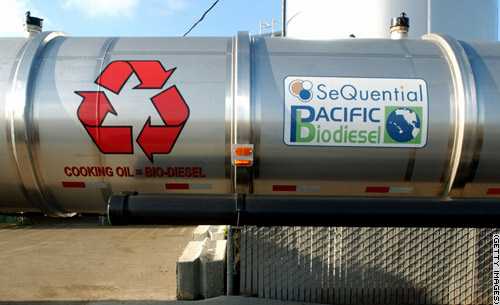
Biodiesel is one of many new sulfur-free diesel engine fuels now entering the market in small quantities. Most of the new fuels (including biodiesel) are not made from petroleum, but from a number of renewable sources.
Diesel engines provide exceptionally high torque at low rpm, as well as 43% peak efficiency, higher than any other type of engine. While diesels gained a bad reputation in the past for high emissions, newly developed engines have overcome the problem, running clean on fuels with very low sulfur content. Diesel engines naturally emit less carbon dioxide (a greenhouse gas) than their gasoline cousins because of their higher efficiency.
Now that gas prices have gone through the roof again, we need to examine how Bermuda can benefit from turning used cooking oil waste into cleaner burning fuel. By doing so, we can help offset the cost of providing fuel for an assortment of local diesel vehicles, for example, taxis, trucks, generators, GP vehicles and the like.
While a lot of attention has been given to new and exotic technologies like hydrogen-powered cars and hybrid electric vehicles, a simpler and more time-tested solution exists in the form of biodiesel and vegetable oil fuels. Instead of expensive new technologies, the trusty diesel engine, running on domestically grown bio-fuels and/or used cooking oil, is suddenly being rediscovered as a viable alternative.
In many cases, the arguments for using biodiesel outweigh the objections:
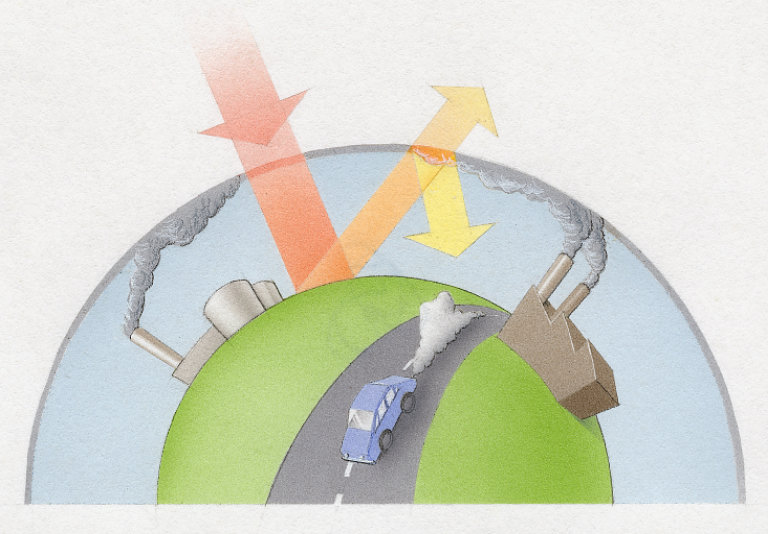 Pros
Pros- Diesel engines are uniquely suited to run vegetable oils because the inventor, Rudolph Diesel (1858-1913), originally designed them to run on peanut oil. Even though the first diesel engine was patented (No. 67207) in 1892, today's diesel engines are not much different from Diesel's first engine. Thus, they are ready, willing and able to run on all kinds of environmentally friendly fuels.
- Saves money on fuel costs.
- Reduces emissions. There is a 90% reduction in emissions when choosing to use pure biodiesel over petroleum diesel. As oil-bearing plants such as soybeans grow, they take in carbon dioxide (CO2) from the atmosphere. The same amount of CO2 is released back into the atmosphere when vegetable oil is burned. This process is referred to as being “carbon neutral” because there is an equal exchange in carbon dioxide uptake and release. Burning fossil fuels continually adds to the carbon load of the atmosphere. The current planetary carbon dioxide output is well beyond the Earth’s natural ability to trap it, and the atmosphere has the highest CO2 concentration in modern times. Most scientists believe this to be the cause of global warming.
- Recycles waste oil from restaurants.
- Make a positive political statement. Decrease your reliance on a system that you may criticise. There are alternative sources of energy now! Help create a new system, one that reflects your values.
- Biodiesel exhaust smells like popcorn!
Cons
- Some vehicle warranties can be voided by installing a conversion kit and/or using biodiesel. If you have a relatively new car that's still under warranty, this is an important concern and you should check with your car manufacturer.
- Gathering used oil is messy work. But as the alternative fuel movement gains in momentum, fuel and supplies are becoming more available and easier to implement.
- There is mixed data on how SVO affects engine life span. Some say the life span is reduced: "McCormick, a senior fuels engineer for the National Renewable Energy Laboratory in Golden, CO, said studies have shown that running vehicles on vegetable oil can reduce a car's lifespan. ‘Those vehicles aren't going to last as long as they would run on conventional fuel,’ McCormick said. ‘Diesel engines are supposed to be low-maintenance and long-lasting engines. Running on straight vegetable oil, I don't think that's going to happen’" (source: The Kansas City Star, "One Man's Fish Fry Grease is Another Man's Vehicle Fuel" March 29, 2005). However, many others claim the opposite: "engine wear is greatly reduced, sometimes tripling engine life for engines running on straight vegetable oil" (source: www.distributiondrive.com).
It is very interesting to note that diesel cars are far more prevalent in Europe than in North America. Yet recently in the US, changes are taking place and people are beginning to see the benefits of using diesel cars verses gas engine cars. For instance, CNN reported that most standard diesel cars can be converted to run on biofuels, and with petroleum-based diesel cost rising, the renewable alternative is becoming increasingly popular. However the cost of growing soybeans or other sources of vegetable oil has increased in the last three years, meaning that even with subsidies and tax incentives prices at the pump, the cost of SVO biodiesel is on the rise. As a solution many drivers are switching to the fuel's other major source - used grease from restaurants or WVOs.
Since cooking oil or waste vegetable-oil-based biodiesel has become a viable alternative, many businesses are using it as a primary source for their fuel. Even the city of San Francisco has begun a municipal program to encourage its use, selling grease collected from local restaurants to biodiesel producers, with the hope of eventually using the fuel in its bus fleet.
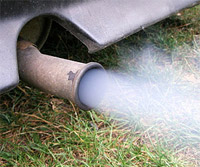 From a federal policy perspective, a recent contest was held by GM and the Department of Energy to develop fuel-efficient, alternative-power trains, and the top three entries all relied on biodiesel as their primary source of fuel. With their efficiency and low production cost (compared to hybrids), many are looking to diesels as a way to comply with the new Corporate Average Fuel Economy (CAFE) standards for 2012 for cars and light trucks, enacted by US Congress in 1975.
From a federal policy perspective, a recent contest was held by GM and the Department of Energy to develop fuel-efficient, alternative-power trains, and the top three entries all relied on biodiesel as their primary source of fuel. With their efficiency and low production cost (compared to hybrids), many are looking to diesels as a way to comply with the new Corporate Average Fuel Economy (CAFE) standards for 2012 for cars and light trucks, enacted by US Congress in 1975.
Greenrock understands the automotive marketplace in Bermuda is small and so car distributors are forced to accept the models that car manufacturers are willing to customise and ship to Bermuda based on our TCD standards. However, there seems to be some hypocrisy in this reality when you can search on various UK websites and find similar models to those sold in Bermuda but in diesel versions, all of which are right-hand drive and exceed both the combined mileage and emission levels of their gasoline cousins. (Click on our attached list: Diesel Car Models Suitable for Bermuda (45.95 Kb))
It will take consumers demanding diesel cars from local car distributors. It will also take Government recognising the long-term benefits of promoting diesel cars and possibly using biodiesel for their own fleet of cars.
For example, UK Peugeot operation is currently conducting a pioneering biodiesel trial with a fleet of Peugeots and is producing excellent results for the fleet operator and the operator’s green image.
 Denbighshire County Council has become one of the first local authority fleets in the UK to trial high-blend biodiesel on its vehicles. The 25% mix, currently used by a sample of Peugeot 207, Partner, Expert and Boxer vans, is returning strong fuel economy, reducing fuel costs and – most importantly – cutting the council’s environmental impact.
Denbighshire County Council has become one of the first local authority fleets in the UK to trial high-blend biodiesel on its vehicles. The 25% mix, currently used by a sample of Peugeot 207, Partner, Expert and Boxer vans, is returning strong fuel economy, reducing fuel costs and – most importantly – cutting the council’s environmental impact.
Customers can benefit from cheaper fuel (currently two pence per litre cheaper than standard diesel) and cleaner, greener vehicles with reduced carbon monoxide and oxide sulphate emissions. Fewer tailpipe particulates are an added bonus.
Denbighshire County Council has been trialing biodiesel in its range of Peugeot vans since last summer. Assistant Fleet Manager Chris Brown says: “We are still in the early stages and are set to continue – our staff appreciate helping the environment without having to change their normal driving routine. The fuel economy return compares well against published manufacturer averages, and the fuel is costing us less to purchase. These results, coupled with the highly publicised benefits of using biodiesel on the environment and the positive reaction of our staff, add up to an attractive proposition for our fleet.”
Steve Harris, Peugeot’s Fleet and Leasing Director, predicts more fleets will follow Denbighshire’s lead: “Those companies currently running Peugeot diesels can make this switch without incurring additional costs. By participating in this trial we are reaffirming our responsibility to find a viable alternative to fossil fuels and ensure our future sustainability.” Peugeot are pioneers of the particulate filter, commonly known as "FAP", with which more than 1.5 million cars worldwide have been equipped (source: Peugeot UK).

